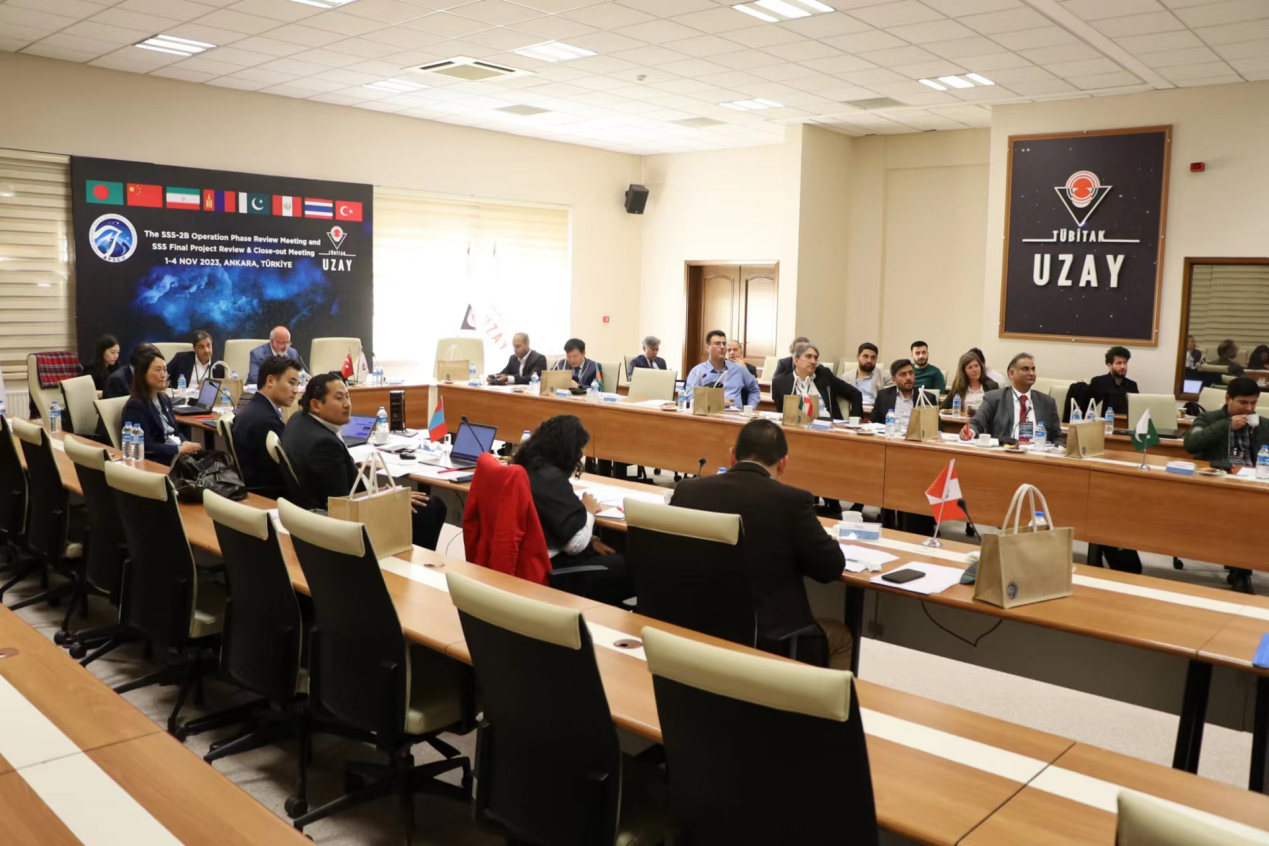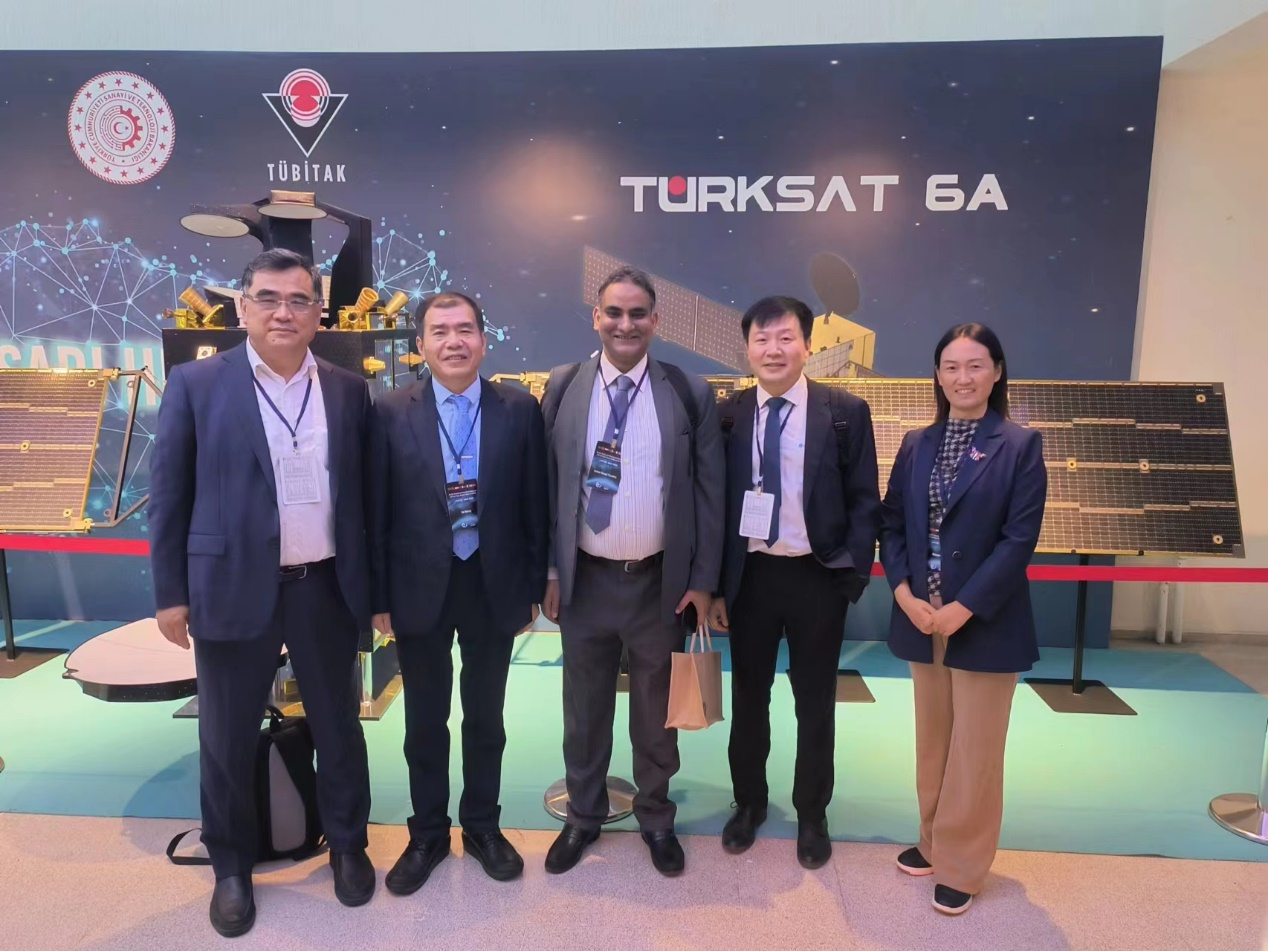From 1 to 4 November, 2023, the Asia-Pacific Space Cooperation Organization (APSCO) held the SSS-2B Operation Phase Review Meeting and the SSS Final Project Review & Close-out Meeting in Ankara, Turkey. The meeting took place at the Space Technologies Research Institute of the Scientific and Technological Research Council of Turkey (TUBITAK UZAY), located at the Middle East Technical University (METU). Dr. Ferhat, Deputy Secretary-General of APSCO, Dr. Mesut, Director of TUBITAK UZAY, Dr. Alime, Vice Director and Project Manager of SSS-2B, and Dr. Ebrahimi, Director of Education and Training Department of APSCO, jointly announced the opening of the Concluding Meeting, with thirty (30) representatives from Member States in attendance.
Beihang University, as the leading university of the project, sent Mr. Huang Hai and Ms. Chen Shenyan, Experts of the Centre in Micro-satellite Technology, to participate in the meetings on behalf of the SSS-1 team of Beihang University. At the meeting, Professor Huang Hai made a summary report on the SSS-1, which was highly recognized by experts from various countries. Representatives from APSCO Member States also reported on their respective participation and contributions to the SSS Project, and said that the project had enhanced the satellite technology capabilities of their countries and brought substantial benefits. This project is the first engineering practice project successfully implemented by APSCO, which has very important educational and training value in space technology, and is also an essential achievement of Beihang University to achieve effective cooperation and exchange in space technology. At the end of the meeting, representatives from different countries put forward their opinions and suggestions on the work expected in the next 5 to 10 years.
APSCO SSS Project is an international cooperation project initiated by APSCO with the participation of eight (8) Asia-Pacific countries, including China, Pakistan, Peru, Turkey, etc. The Governing Board of APSCO considered and approved the feasibility study report of the project at the end of October 2015. The project is a three-star constellation system consisting of a 30kg micro-satellite and two 3U CubeSats, which has carried out a number of space missions such as flight experiments with electronic payloads and the deployment flexible components, including flight attitude maintenance, interstellar communications, ADS-B, etc. The government of China provides free on-board services for the project. The project aims to promote the research, development and application capabilities of small satellite technology in universities of APSCO Member States, cultivate talents and facilitate exchanges and co-operation among APSCO Member States in the field of space technology and applications. The project is also included in the white paper on China’s Space Activities in 2016. On October 14, 2021, the SSS-1 developed by Beihang University and SSS-2A developed by Shanghai Jiaotong University were successfully launched from Taiyuan Satellite Launch Center in Shanxi, China. In April 2023, SSS-2B, jointly developed by Turkey and Thailand, was launched into orbit by piggy-backing a SPACEX Falcon. All three small satellites have completed their designated space missions, successfully concluding the project.





